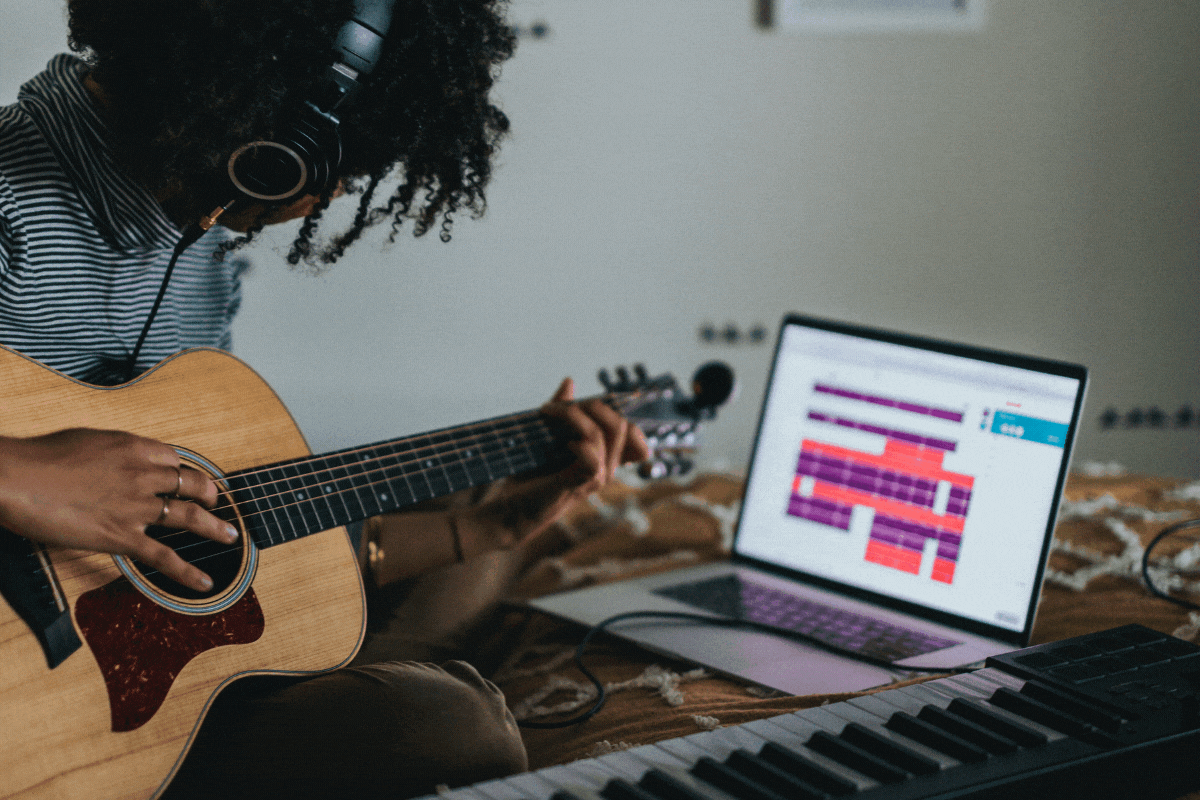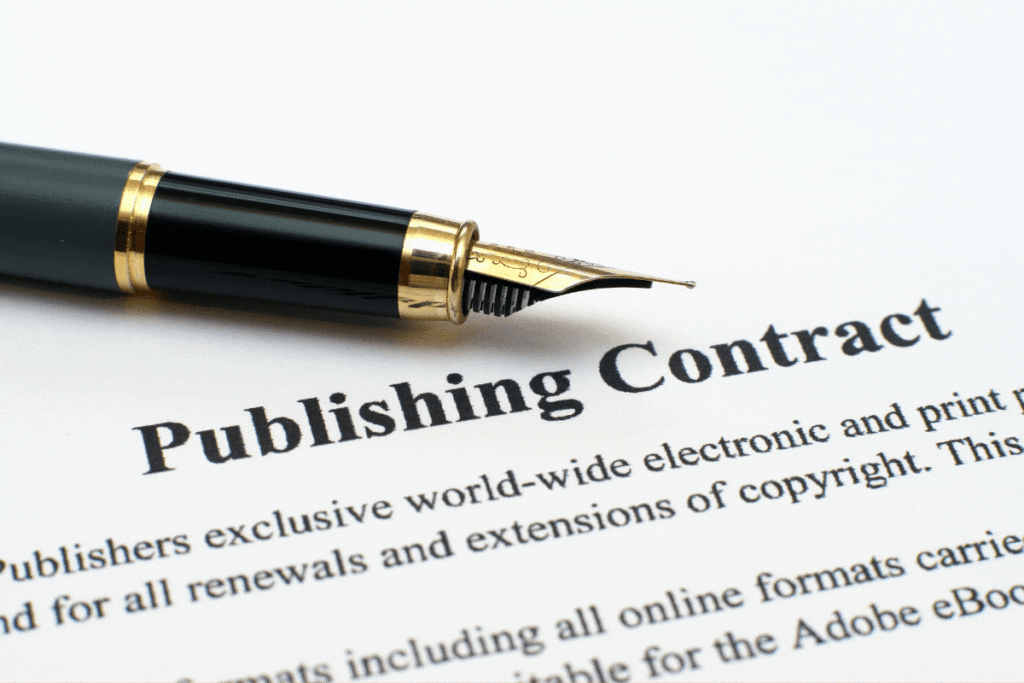Finding success in the music industry can mean a lot of different things. To some, it implies glitz and glamour. To others, it’s as simple as making a living wage while being able to pursue a passion. There’s been a long-held belief that to make money in a notoriously unforgiving industry, one has to be super famous. But, that’s not true.
For the independent singer-songwriter, securing financial income has typically meant giving up some creative control by signing a record deal and hitting the road to generate revenue. Before you can collect your share, the label gets to recoup any advance money you may have received. However, there’s another path to financial and creative freedom: music publishing.
Music publishing pre-dates the music business as we know it. In the 1750s, music publishing first took shape as artists shifted from hand-copying music to printing and publishing sheet music. The music industry has evolved drastically since then. Though we have gone from sheet music to MIDI files, the core concept of music publishing has remained. This also includes how songwriters or composers get paid for distributed music.

WHAT IS MUSIC PUBLISHING?
Music publishing is the promotion and monetization of a song’s composition copyright. When a recording completes, it exists in two forms: the composition — the melody, lyrics, and music. As well as the sound recording — the recorded version of the composition. Whoever owns the rights to these properties can decide how or who uses the music. Music publishing only relates to the composition, not the sound recording.
When a recording is completed, it exists in two forms: the composition — the melody, lyrics, and music and the sound recording — the recorded version of the composition.
A songwriter or music composer enters into a contractual agreement with a music publisher. The songwriter assigns a portion of their music copyrights to the publisher. In exchange, the publisher seeks out commercial opportunities. They also track royalties to ensure the payment of the songwriter. Royalties are payments owed to composers, songwriters, and recording artists for licensing music. The songwriter and copyright owner receive royalties when their music is used commercially or publicly performed.
WHAT IS A PUBLISHING ADMINISTRATOR?
A music publishing administrator handles the rights of a songwriter and helps collect any royalties by registering songs with Performing Rights Organizations (PROs), Collective Management Organizations (CMOs), or Mechanical Rights Organizations (MROs). Music publishing administrators work on behalf of the artist, but do not have any ownership of the songs they administer. Instead, the administrator tracks and collects royalties and licensing fees on behalf of the copyright holder. Their pay is a small commission fee.

WHY SO MANY ORGANIZATIONS?
Different licenses generate different royalties, requiring an organization specializing in that type of royalty to collect. The three types of organizations are:
- A PRO, or performance rights organization, is a company that collects performance royalties on behalf of composers, songwriters, and recording artists. Performances can include playing on television, radio, restaurants, websites, and other broadcasting systems. PROs collect fees and then pay them to their registered songwriters or their publisher. There are three PROs in the United States: American Society of Composers, Authors, and Publishers (ASCAP), Broadcast Music Inc. (BMI), and the Society of European State Authors and Composers (SESAC).
- An MRO, or mechanical rights organization, is responsible for the administration of mechanical licenses. In some cases, they also collect and payout mechanical royalties to publishers. If a region or country does not have a single CMO responsible for the performance and mechanical royalty collections, they split these responsibilities between a PRO and an MRO. Major MRO’s in North America include The Harry Fox Agency and The MLC.
- A CMO, or collective management organization, is an international organization that registers, tracks, and collects both performance and mechanical royalties.
LET’S TALK LICENSING
Learn about these different types of licenses associated with publishing:
- Blanket License — an annual fee paid to a PRO that provides license to every work in the PRO’s catalog. Blanket licenses are used mainly by radio stations to have the right to play any song from a single catalog source instead of paying license fees for each song individually.
- Mechanical License refers to the sound recording licensing and permits the song’s release in an audio-only format. Royalties generated by a mechanical license are subjected to a statutory rate dictated by the Copyright Statute. The rate is currently 9.1 cents per song or 1.75 cents per minute of playing time, whichever is greater.
- Performing Rights License — granted when music is broadcasted or performed at an event, restaurant, or similar.
- Synchronization License — granted when music is paired with visual media such as a film, television show, or video game.

THE PUBLISHING DEAL(S)
As mentioned above, a song exists in two forms, the sound recording and composition. This section will focus on the composition. A composition has two types of rights: the writer’s share and the publisher’s share, both being worth 50% each.
The writer’s share is credited to the songwriter. A publisher’s share refers to the percentage of revenue credited to a publishing administrator. Before you sign any publishing deal, you exist as the songwriter and the publisher and own 100% of the composition. How does this impact any publishing deal you may sign? Let’s take a look at the kinds of contracts that are standard in the industry:
The writer’s share is credited to the songwriter, and the publisher’s share refers to the percentage of revenue credited to a publishing administrator. Before you sign any publishing deal, you exist as the songwriter and the publisher and own 100% of the composition.
Administration Agreement
In these publishing deals, songwriters retain complete ownership of the writer’s share and assign a portion of the publisher’s share to the publishing administrator. Publishing administrators do not own or control any part of your copyright during this agreement which often spans one to three years and doesn’t typically include creative services. The primary benefit of an administration agreement is for the publishing administrator to handle registration of all of your songs and the tracking and collection of royalties.
Co-Publishing Agreements
In a co-publishing agreement, it’s standard to assign 50% of your publisher’s share to the publishing administrator. You retain 100% of the writer’s share and 50% of the publisher’s share, meaning you would hold 75% of total publishing royalties. These types of deals often come with stipulations: you may have to sign with a label or fulfill a quota by writing a minimum number of songs. The benefit of a co-publishing agreement is the creative services it provides; publishing administrators will pitch your music to secure licensing opportunities to generate revenue since they have a more significant piece of the pie.
Traditional Agreement
A traditional publishing deal typically calls for signing over 100% of your publishing rights. In addition, the publishing administrator manages all standard creative and administration responsibilities.
Work-for-Hire Agreement
This is a per-project agreement that provides a flat fee payment for a single song. Depending on the scope of the agreement, the publishing administrator may provide creative or administrative support for the single song.
Interested in learning more about navigating the music industry as an independent musician? Check out our Music Industry Essentials online course with NYU Tisch and Billboard or download Yellowbrick’s Ultimate Music Career Guide.






